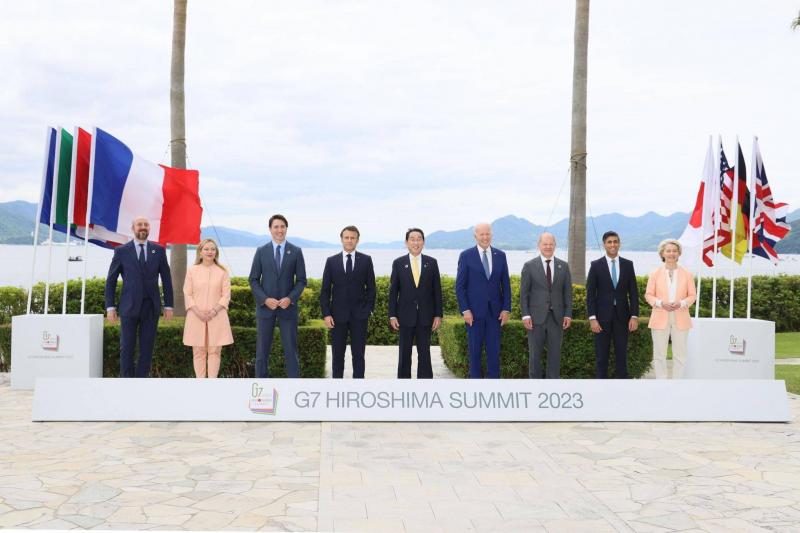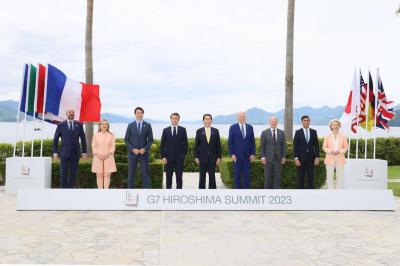The G7 leaders warned on Saturday that any attempts to "weaponize" trade and supply chains "will fail and face consequences," a veiled warning to China regarding its economic practices. The group stated, "Attempts to weaponize economic dependencies by coercing G7 members and our partners, including small economies, will fail and face consequences."
The leaders urged China to support a comprehensive, just, and lasting peace based on territorial integrity and the principles and purposes of the United Nations Charter, including through direct dialogue with Ukraine. They also called for a peaceful resolution to Taiwan issues with China and expressed readiness to build "constructive and stable" relations with Beijing.
U.S. National Security Advisor Jake Sullivan noted that the G7 will agree on a "common set of tools" to combat economic "coercion" and reduce the risks of undermining high-tech exports to China for national security.
A new G7 working group will focus on "governance, protection of intellectual property rights," and the "responsible use" of new technologies.
In terms of support for Ukraine, the G7 announced their intention to continue diplomatic, financial, humanitarian, and military support, in addition to measures to "raise the costs" for Russia and its supporters in light of the situation surrounding Ukraine. The statement confirmed "steadfast support for Ukraine no matter how long it takes to establish a comprehensive, just, and lasting peace," along with increased "diplomatic, financial, humanitarian, and military support."
Regarding the conflict in Sudan, G7 leaders called on all actors in Sudan to renounce violence and take effective steps to reduce tensions and ensure the safety of all civilians. The leaders stated, "The parties to the conflict must fulfill their obligations under international humanitarian law and ensure the safety of all civilians, including humanitarian workers, and not obstruct or restrict the delivery of life-saving materials."
On the Syrian crisis, G7 leaders reaffirmed their "strong commitment to an inclusive political process," facilitated by the United Nations in accordance with Security Council Resolution 2254. The statement emphasized that the international community should not consider normalization or assistance for reconstruction until there is real and lasting progress toward a political solution. Additionally, they expressed ongoing support for the work of the Organization for the Prohibition of Chemical Weapons and are committed to holding accountable those responsible for the use of chemical weapons and violations of international law, including international humanitarian law and human rights law. The statement also called for unhindered access to humanitarian assistance for all Syrians, particularly through UN cross-border aid that is "irreplaceable."
Concerning the situation in Palestinian territories, G7 leaders stated that both Israelis and Palestinians should refrain from unilateral actions, including settlement activities and incitement to violence. They urged both parties to take steps to build trust towards a two-state solution and confirmed continued support for the Palestinian economy and the United Nations Relief and Works Agency for Palestine Refugees.
The G7 urged Iran to cease its support for Russia in the context of the Ukrainian crisis and to refrain from supplying Moscow with any weapons. The summit statement read, "Iran must stop supporting Russia's aggressive war against Ukraine." It also noted that Iran is engaged in destabilizing activities, accusing Tehran of transferring missiles, drones, and related technologies to "governmental and non-governmental entities," as well as to "proxy groups." Such actions are stated to contravene UN Security Council Resolutions 2231 and 2216. Furthermore, the leaders emphasized the importance of ensuring maritime security in the waterways of the Middle East, urging Iran not to interfere with the legitimate practice of freedom of navigation.




